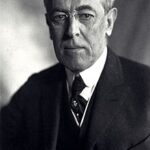The Wilson Military Intervention Decision
President Woodrow Wilson made one of his most controversial choices in July 1918. He authorized 13,000 American troops to deploy to Russia during their civil war. ⚔️ The Wilson Military Intervention targeted Bolshevik forces directly. Wilson claimed the mission would protect Allied supply depots in Archangel and Vladivostok. However, American forces actively fought alongside anti-Bolshevik White Army troops. This exceeded the stated protective mission significantly.
Constitutional Concerns
Wilson bypassed Congress entirely for this military deployment. The Constitution grants war declaration powers exclusively to Congress. ⚠️ Legal experts questioned Wilson’s authority to wage undeclared war. The intervention lasted nearly two years without legislative approval. Wilson justified the action as protecting American interests abroad. Critics argued this set dangerous precedents for presidential war powers.
Strategic Motivations
Wilson feared Bolshevik ideology spreading globally after Russia’s revolution. 🌍 He wanted to prevent Communist control of Russian territory. Allied pressure influenced Wilson’s decision significantly. Britain and France demanded American military support in Russia. Wilson also worried about German influence over the new Bolshevik government. These concerns drove his controversial military intervention choice.
Impact:
Immediate Military Consequences
The Wilson Military Intervention achieved few strategic objectives. American forces suffered 424 casualties fighting in harsh Russian conditions. 🔥 The intervention failed to defeat Bolshevik forces effectively. White Army allies proved unreliable and poorly organized. American troops faced fierce resistance from local populations. The mission lasted until April 1920 with minimal territorial gains. Military commanders questioned the intervention’s strategic value throughout the campaign.
Diplomatic Relations Damage
Wilson’s decision poisoned U.S.-Soviet relations for decades. The intervention created deep mistrust between both nations. 📉 Soviet leaders viewed America as an aggressive imperial power. This hostility influenced Cold War tensions significantly. The intervention undermined Wilson’s Fourteen Points credibility internationally. European allies questioned American commitment to self-determination principles. Diplomatic historians cite this as a foundational moment in East-West antagonism.
Constitutional Legacy
The intervention established troubling precedents for presidential war powers. Future presidents cited Wilson’s actions to justify military deployments. 🌍 Congress lost significant influence over military decision-making. Legal scholars debate the intervention’s constitutional implications today. The decision weakened legislative oversight of executive military actions. This constitutional imbalance contributed to later military interventions without congressional approval. Wilson’s choice fundamentally altered the balance of war powers.
